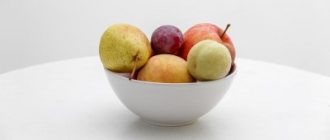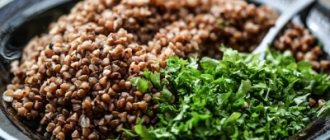Is there any benefit?
Pomegranate contains many vitamins and essential amino acids that a person needs for normal life. But, unfortunately, pomegranate does not have any benefit for dogs, rather the opposite. The increased acidity of this fruit can damage your pet's stomach.
Why can't you give?
Moreover, the high content of natural dyes can provoke allergies in the animal. Another reason for an allergic reaction may be the chemicals used to treat fruits and berries.
Even a couple of pomegranate seeds can lead to serious negative consequences for a dog's health.
Can dogs eat fruit?
As you know, the ancestors of dogs are wolves. However, not everyone knows that these predators are often not averse to eating the fruits of fruit trees, berries and roots that have fallen to the ground. This is how wolves quench their thirst and receive useful substances. Our pets can receive all these vitamins and minerals from specially developed vitamin foods, however, fruits, vegetables and berries cannot be replaced by any nutritional supplements.
The fruits of fruit plants serve well as an incentive treat and help fight seasonal vitamin deficiencies. In addition, experienced breeders recommend certain fruits in cases of constipation in an animal. However, it is important to understand that not every fruit is good for dogs.
Many fruits and berries can cause allergies, digestive and intestinal disorders, gases, and sometimes even the death of the animal. If they tell you that a dog can eat anything, don’t believe it, such owners are simply careless and inattentive to those they have tamed.
Many inexperienced breeders go from one extreme to another. Some people don’t give fruit to their dogs at all, while others (vegan owners) believe that what’s good for them will be good for their dog.
Some people mistakenly believe that animals are able to identify the fruit their body needs by smell. Unfortunately, it is not. In this case, it is not the dog’s natural need for some useful component of the fruit that is at work, but the dog’s social essence - I want what my loved one eats. Let's figure out what you can do to please your dog.
Corky
For diarrhea
Pomegranate peels have an astringent effect. Therefore, if your dog develops diarrhea, they can be used as a medicine. A decoction is prepared from pomegranate peels, and then given to the dog in small portions for 1-2 days. If diarrhea does not go away after this time, you should immediately consult a veterinarian.
But do not forget that diarrhea can be not only the body’s reaction to a low-quality product, but also a symptom of a serious disease. Therefore, if your dog experiences decreased activity, loss of appetite, vomiting, or is bothered by something, you should immediately contact a veterinarian.
From worms
People use pomegranate peels in folk medicine as a remedy for worms. But is it possible to treat worms in dogs with this method?
Veterinarians have a firm position on this issue: to prevent and treat dogs against worms, it is necessary to use only specially designed products.
Eating pomegranate peels to dogs in small quantities does not cause the desired effect, and if given in larger quantities, the pet will begin to suffer from constipation.
Acceptable fruits for dogs
Of course, if there is a deficiency of any microelement, decreased immunity or seasonal vitamin deficiency, fruits cannot cure a dog - there are specially developed complex nutritional supplements for this. But fruits are still needed even for those animals that receive the highest quality nutrition and additionally take veterinary vitamins.
Fruits can be used as a treat, as a reward for training, as a quick-acting remedy for occasional constipation, or simply as a way to pamper your pet and feed him by hand. Therefore, it is worth introducing them into the diet; it is only important to know what fruits can be given to a dog.
Apples
. This is a delicious, juicy and healthy fruit that rarely causes allergies in children and animals. Thanks to the variety of varieties, you can choose the one that your dog likes: sweet, sour, sweet and sour, tart. Grated apple and carrots, seasoned with low-fat cottage cheese or kefir, are especially useful.
Bananas
- another fruit loved by many dogs. Half a not very ripe banana can be given to your dog every couple of days as a valuable source of potassium. Soft, overripe bananas are not suitable for animals due to the risk of digestive upset.
Melons
. They quench thirst well and gently stimulate intestinal peristalsis. You can give often, but not in large quantities. If the dog is not allergic to bee products, then the melon should be mixed with a spoonful of honey - this is very useful.
Watermelon
. His dog can eat as much as he wants. The only drawback is the dog’s frequent requests to go out for a walk after eating watermelon. If watermelons are grown without the use of growth and ripening accelerators, then their rinds should also be given to dogs: they accumulate many minerals in an easily digestible form.
Plums
. You can give your dog not very ripe pitted plums. Overripe plums, especially those that have lain down, cause clouding of consciousness and eating disorders due to the alkaloids formed.
Pears
. Dogs accustomed to fruit eat pears well. They especially like pears with thick, crispy flesh. Pears almost never cause allergies.
Rowan
all varieties. An excellent source of microelements, accessible and easily digestible. It has no contraindications, but the dog must be accustomed to it from an early age. Rowan berries can be mixed into wet food if the dog refuses to eat them in their pure form.
Gooseberry
. Very useful not only for people, but also for dogs. But you can offer an animal only those fruits that have ripened naturally, without chemical acceleration.
Blueberry
. Very healthy, but has a strong taste and aftertaste. Dogs rarely eat them in their pure form, so dried or fresh berries should be mixed into their food. Currants of all varieties are a tasty and healthy berry that many trained dogs eat in their pure form. It is advisable to grind red currants with other sweet fruits or honey (do not add sugar!).
How will the harm manifest itself?
Some dogs can eat a few pomegranate seeds and feel great. But if you feed it constantly, then over time your pet may develop serious stomach problems.
For other pets, even a small amount of grains can cause poisoning. Symptoms of poisoning include:
- diarrhea and vomiting;
- weakness;
- increased thirst;
- restlessness, trying to eat grass, paper, bark, wood, etc.;
- rapid breathing.
If these symptoms occur, first aid must be provided.
A solution of potassium permanganate or activated carbon is suitable for this. An allergic reaction to pomegranate in dogs can manifest itself as follows:
- discharge from the eyes, nose and ears;
- swelling;
- itching;
- rash;
- the appearance of an unpleasant odor from wool and skin.
If these symptoms occur, you should contact your veterinarian to prescribe an appropriate allergy medication.
Rules for feeding fruits
Each new fruit is introduced in small doses while monitoring the dog’s well-being. Signs of an allergy - redness of the nose, eyes, tips of the paws, rashes in the form of flat blisters and pimples, difficulty breathing, swelling of the neck and muzzle, hair loss, peeling of the skin, runny eyes and nose - require contacting a veterinarian for first aid. The same applies to cases of digestive disorders - vomiting, diarrhea, constipation, bloating, increased gas formation.
You need to choose fresh fruits grown in natural conditions, without signs of damage, without a putrefactive or “chemical” smell. It is better to give preference to seasonal fruits (this rule does not apply to exotic fruits). Fruits are not mixed with food, but are given as treats separately, in between feedings. You cannot give your dog fruit and dairy products on the same day.
You need to accustom your dog to fruits from puppyhood, giving them a little while playing. During the training period, you can mix fruits with the main food.
Adult dogs, not accustomed to fruits and vegetables, do not like plant foods and can only eat them mixed with meat or fish. In this case, they are given fresh and boiled vegetables grated and mixed with meat for normal digestion and the prevention of vitamin deficiency.
Jam, even from permitted fruits, is contraindicated for dogs due to the presence of sugar and lack of benefits. Dogs do not need store-bought dried fruits. From home-made dried fruits, a little seedless dried apricots is allowed.
Often, inexperienced dog owners recommend putting overweight animals on a fruit diet. This is absurd and very dangerous for the dog's health. She needs to lose weight by reducing the portion of food and increasing physical activity, but not by eating plant foods alone.
All norms are indicated for medium-sized dogs - 25-30 cm tall at the withers, weighing 20-25 kg. For dogs of dwarf and small breeds, all portions are reduced several times, and it is better not to give them “problem” fruits at all.
About the author: Anna Aleksandrovna Maksimenkova
Practicing veterinarian in a private clinic.
Directions: therapy, oncology, surgery. Read more about me in the “About Us” section. Dog owners have always been faced with the question of whether they can give their dogs fruit or not? And the answer to this question from experts is yes. Indeed, dogs can and even should be given fruit, but not in large quantities and only those that are safe and will not harm the dog.
The same vitamins and minerals that a dog gets when he eats food, he can also get from eating fruits or vegetables.
Breed exceptions
Of course, in some large breed dogs that are not prone to various allergic reactions, a small amount of fetus is more likely not to cause any stomach problems.
But there are species that are more susceptible to allergic reactions. These include terriers, retrievers, flat-faced dogs and setters. Therefore, it is advisable not to give pomegranate to representatives of these breeds at all.
What fruits should you limit?
Here is a list of fruits that a dog can eat, but in limited quantities and not often.
Papaya
. A slice of peeled fruit will stop mild diarrhea. If consumed frequently, it causes constipation and increases blood sugar.
Kiwi
. A circle of kiwi will give your pet a portion of vitamin C and valuable fruit acids. No more than one circle is allowed every 2-3 weeks for a medium-sized dog.
Persimmon
soft “chocolate” varieties without peels and seeds stimulate the intestines well and help normalize stool. Dogs should be fed it if they have problems with stool.
Cherries and sweet cherries
. They are given pitted as a treat if the dog likes them. But they are of no use.
Apricots
. They are given without seeds and, preferably, without skin. In large quantities they are very weak, especially for puppies and young dogs.
Strawberry
. Probable allergen. But many dogs like to eat it, so you can offer them a couple of berries a day during the season.
Raspberries
. It is an even stronger allergen, so it is given to dogs in very limited quantities.
Blackberry
. A very controversial fruit. Veterinarians do not note any benefits from it, it is poorly absorbed, and allergic reactions to it occur. Giving it to a dog is allowed on a limited basis and only when the dog himself asks for the berry.











